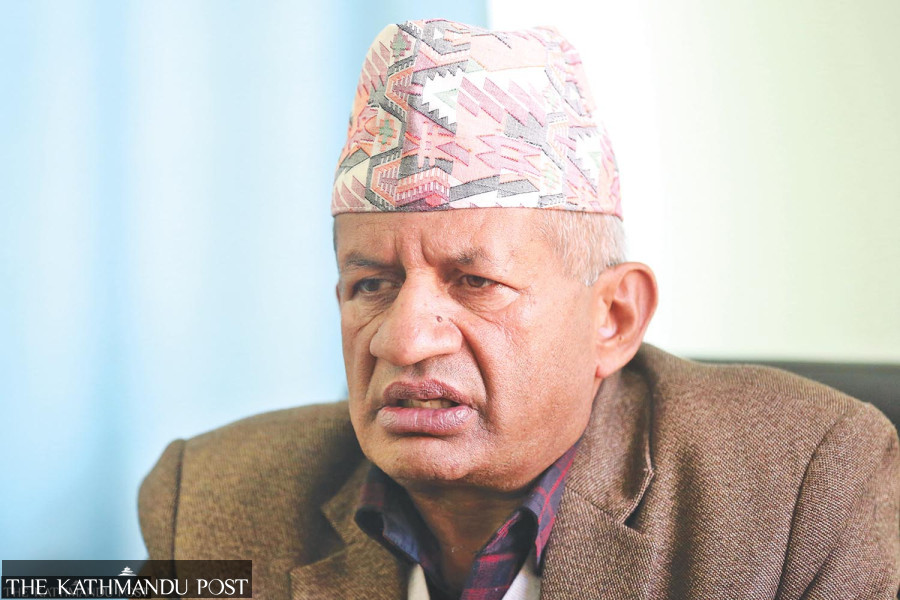National
Experts advise Nepal to stick to its non-alignment policy
We should not deviate from our foreign policy in the name of supporting the big powers, says former foreign minister Pradeep Gyawali.
Anil Giri
Is the Non-Aligned Movement (NAM) of 1961 still relevant? Some experts say, yes it is, while some others say due to the rapid shift in the geopolitical order in recent decades, it needs to be reconsidered.
Speaking at the launch of a book by former ambassador Dinesh Bhattarai in Kathmandu on Monday, political party leaders, diplomats and experts highlighted the various challenges that Nepal’s foreign policy is confronted with due to rapid geopolitical shifts and argued that Nepal should stick to its non-alignment policy.
Bhattarai’s book “Non-Alignment, quest for an independent foreign policy,” was published by the Centre for Nepal and South Asian Studies, Tribhuvan University and jointly unveiled by former foreign minister Pradeep Gyawali, another former foreign minister Sujata Koirala, CPN (Maoist Centre) leader Ram Karki, Executive Director of CNAS Mrigendra Bahadur Karki and the writer himself.
“There has been a rapid geopolitical shift and the present world order established by the US is under threat. The world is heading towards multi-polarity,” said Gyawali. “Though some experts suggest that multi-polarity comes with several risks, a country like Nepal would have choices and alternatives if we navigate our national interests properly.”
Gyawali said that non-alignment, balancing act and peaceful resolution are in the genes of the Nepali people and these are also incorporated in Nepal's foreign policy while expressing worry that some political parties have used the foreign policy as a tool to retain power.
“We should not deviate from our foreign policy in the name of supporting the big powers. Some are perceived and some facts have also stated that our fundamental foreign policy has been compromised and is tilting towards one particular power. But we should remain committed to the non-alignment policy,” said Gyawali.
Gyawali, who is also the deputy secretary general of the CPN-UML, said some deviation can be seen now in Nepal’s current Pushpa Kamal Dahal-led government as it strives to remain in power. “One can remain in power for a few years [by compromising on foreign policy], but in the long term, the country has to pay a huge price,” he added.
CPN (Maoist Centre) leader Karki, who is also the chief of the party’s international department, was a bit cautious about the objectives set by the non-alignment movement. Karki talked about the dramatic rise of India and China and urged that Nepal should take advantage of the progress made by the neighbours without compromising on its national interest.
“In order to take advantage from rising powers like India and China, we have to forge a national consensus. What benefits are we reaping from the MCC or the BRI or the north-south roads? Both the BRI and the MCC are coming in a dangerous way, but how much have we discussed? Where is our deliberation? Nepal should stand up and should maintain its neutrality,” said Karki.
Former foreign minister Koirala said that NAM is a good platform for countries like Nepal, so it should stick to the non-alignment policy. She also urged Nepali politicians not to be allowed to be used as a tool for creating rift between India and China because disturbed relations between India and China would hamper Nepal in different ways. “On foreign policy issues, all political parties, the intelligentsia, public intellectuals, the media and civil society members should come together and should not be impressed or carried away. We all should have a pro-Nepal position,” Koirala added.
The book written by Bhattarai gives an overview of the various facets of the non-aligned movement, its evolution, how Nepal is dealing with other major initiatives and what challenges the movement is facing.
At the function, former foreign secretary Madhu Raman Acharya asked whether non-alignment can work in the ‘new version of the Cold War’. “Is non-alignment a movement or an ideology?” asked Acharya. “Will it give liberty or not?”
Lalbabu Yadav, adviser to former President Bidya Devi Bhandari said that “there are also talks going on about a multiple alignment in some sections and since the world is heading towards multi-polarity, will the non-alignment policy work ?”
CNAS Executive Director Karki lamented the state and status of CNAS that was established long ago. Conceived as a think-tank to advise the government, successive governments have diluted its importance, he claimed.




 8.22°C Kathmandu
8.22°C Kathmandu














